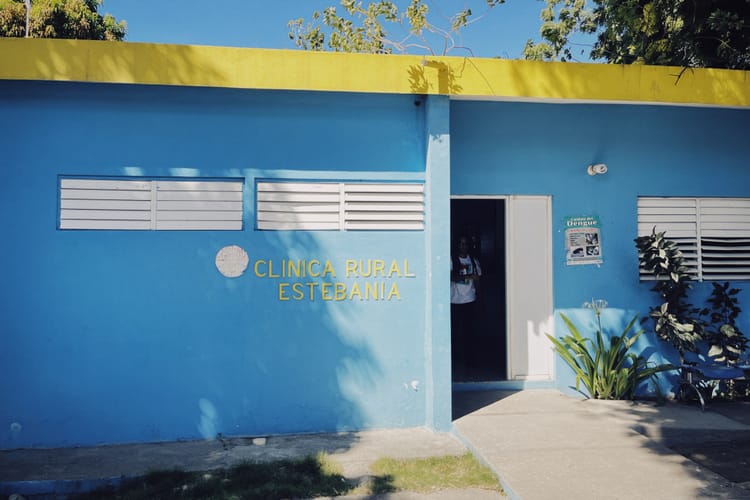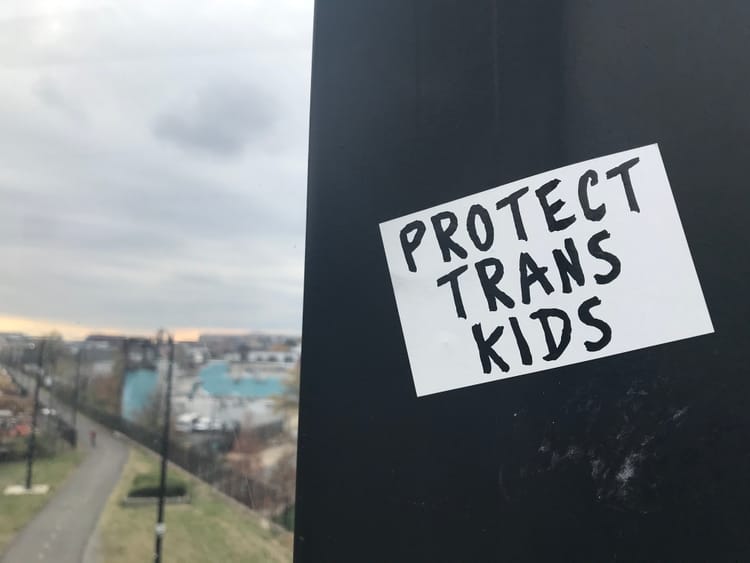My, What Month—and Year—It Has Been
It’s the beginning of May, which means it’s been a year since the Dobbs leak.
Though Justice Alito’s opinion didn’t come as a surprise to anyone who had been following the death-by-a-thousand-cuts dissolution of abortion rights in the United States with any degree of seriousness, it certainly did kick off a lot of excruciating pontificating from the pundit class.
In the slow and painful two months between the leak and the official decision, I spoke to a lot of smart, politically engaged people who really believed that somehow the Supreme Court justices were going to “come to their senses” and change course. I hardly knew what to say to them. What could I say to break through that naïve faith in a system that was already so badly, plainly broken, to the extent it ever worked to begin with? Could I convey the fear, rage, and resignation I was hearing from abortion care workers? The brave but desperate way they were scrambling to prepare for the absolute worst, a human rights crisis like nothing we’d lived through before? I tried. I don’t think it worked.
To receive new posts and support my work, consider becoming a free or paid subscriber.
I can only hope that a few of those people are less naïve now, but I’m still not sure of that. I still talk to too many people who see the catastrophic loss of abortion access as something that hasn’t touched them yet. Too many people who see it as someone else’s problem—whether they admit to that or not—or worse, waste time feeling guilty about not having been personally affected. But guilt has never helped anyone.
On Dobbs day, the day the opinion came down for real, I screamed when I loaded the page on the Supreme Court’s website and read, “Held: The Constitution does not confer a right to abortion; Roe and Casey are overruled.” It reminded me of the sound that came out of my body after my father died. Not a theatrical scream. Just a pure utterance of despair. And then I went to work.
The first person I spoke with on the ground that day was Mia Raven, the self-proclaimed “Alabama abortion lady,” one of the very fiercest abortion advocates in a place that knew a “post-Roe” reality long before Roe was overturned. Mia was sitting in her car in the parking lot of Reproductive Health Services, the Montgomery clinic where she worked and volunteered. The clinic was closed that day and would never reopen. But Mia was determined to keep the POWER House, the reproductive justice organization she founded next door to the clinic, going.
In December, I checked back in with Mia for a profile in ELLE. Sure enough, she was still there, giving people what information she could about abortion within the confines of Alabama’s extraordinarily strict abortion ban. She missed clinic escorting.
“I would be out there every fucking day if it meant that clinic would be open,” she told me.
Last month, Mia became ill and died very suddenly. I don’t have words for the magnitude of this loss, in a year of such profound suffering and loss, and with so much more suffering ahead. But at the risk of sounding trite, one thing I do know is that the world needs more Mia Ravens: People who just do. No whining, only doing. If you are distressed about the state of abortion rights in this country, feel your feelings. Then go make a recurring donation in whatever amount you can afford to your local abortion fund. Stop wringing your hands and do something—anything—concrete to help.
Welp, this is an abrupt transition. But here’s some of my recent work:
Next week (May 9 and 10), an FDA advisory committee will hold public hearings about a birth control pill called Opill. This is part of the process that could lead Opill to become available over the counter, which would be a first for a birth control pill in the United States. Did you know that over 100 countries around the world have over-the-counter birth control? We’re wildly behind the times. I’ll be covering the hearings live and a wrote this explainer to give you all the background you need on this historic development. May 9 just so happens to be Free the Pill Day, the anniversary of the day the FDA approved the first-ever birth control pill in 1960.
At Rewire, we’ve been doing nonstop coverage of the confusing legal battle around mifepristone, one of the drugs used for medication abortion. The best place to keep an eye out for breaking news updates is social media: We always respond as quickly as we can on Twitter, and I have an explainer series on our Instagram. I also dedicated an episode of my podcast, ACCESS, to all the twists and turns in this story to get you caught up. Next up: The Fifth Circuit Court of Appeals hears oral arguments on May 17.
Relatedly, I borrowed my boss Jessica Pieklo’s spot on Rewire’s famed Boom! Lawyered podcast to talk about the Comstock Act. Listen (or watch on YouTube!) to see me regale my coworker Imani Gandy with tales of Anthony Comstock, history’s biggest narc, and the women—including Margaret Sanger and Emma Goldman—who resisted his repressive and fascistic reign. Also, please enjoy this tweet from historian Lauren MacIvor Thompson, which still has me laughing a full week later.
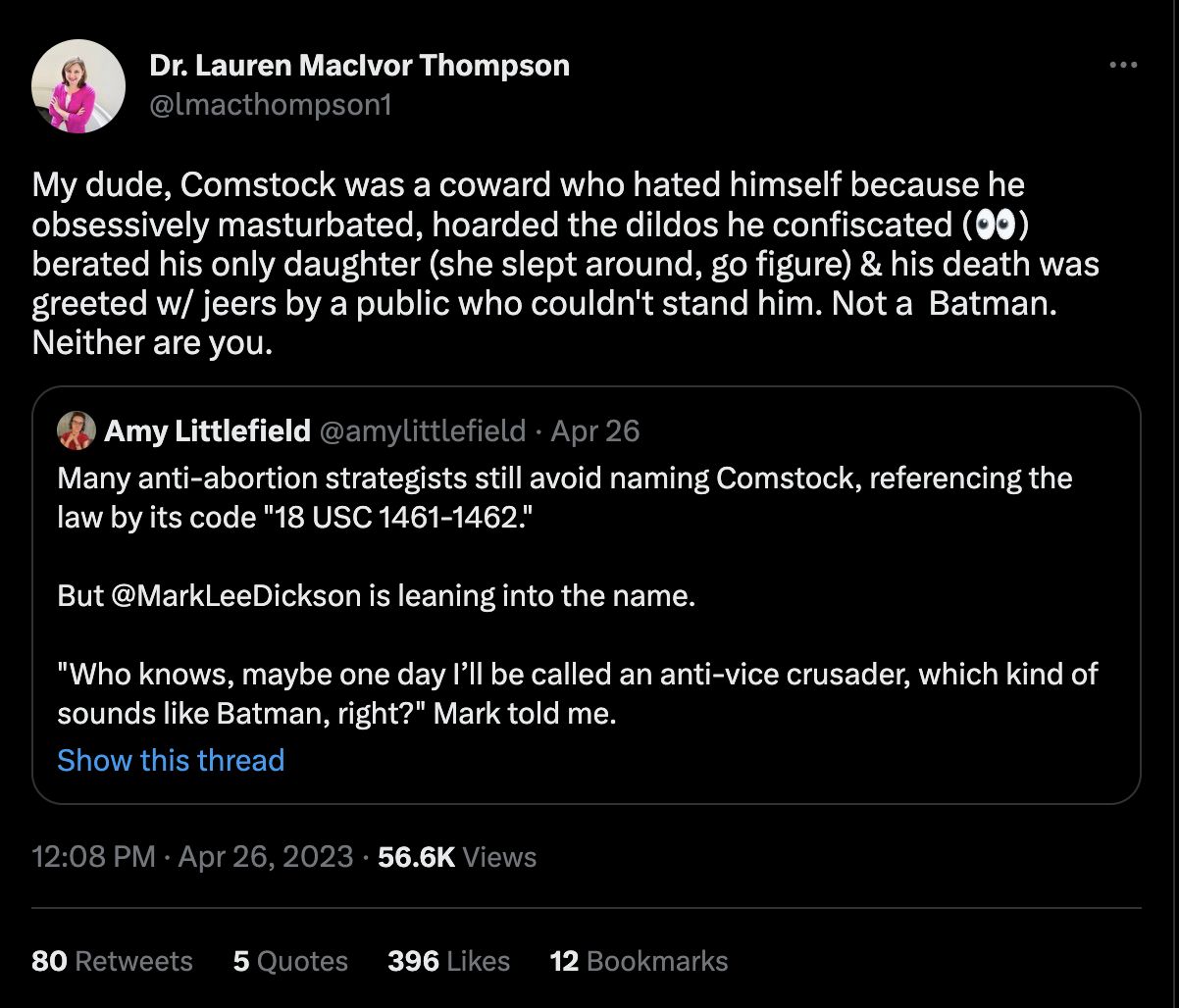
Speaking of confusion and misinformation, I profiled the Online Abortion Resource Squad (OARS), the all-volunteer group taking on the Herculean task of keeping the abortion subreddit free of misinformation, and not only that: making sure every single post there has an accurate, compassionate answer. r/abortion gets absolutely flooded when abortion is in the news—which, if you can’t tell from the length of this newsletter, is all the time now. OARS is another organization that could really use your support. Set up a monthly recurring donation and sleep more soundly knowing that abortion seekers aren’t getting sent to “aunties” who have no idea what the fuck they’re doing.
On Twitter, I came for the collective necks of publications including The New York Times and The Washington Post, which insisted upon using the medically inaccurate and stigmatizing phrase “late-term abortion” in their obituaries of abortion provider LeRoy Carhart, who died this week at 81. If this phrase is in your vocabulary, take it out now.
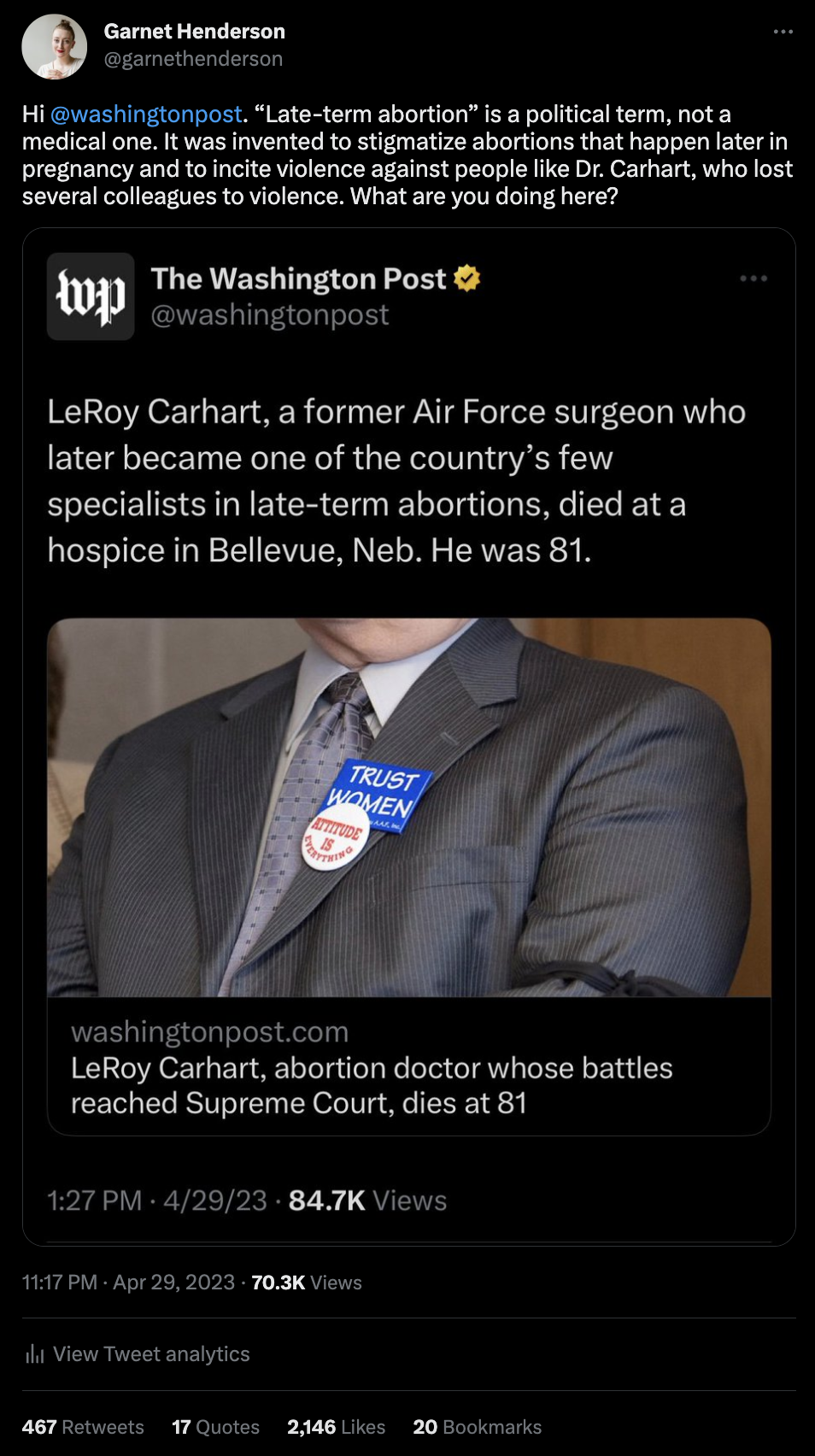

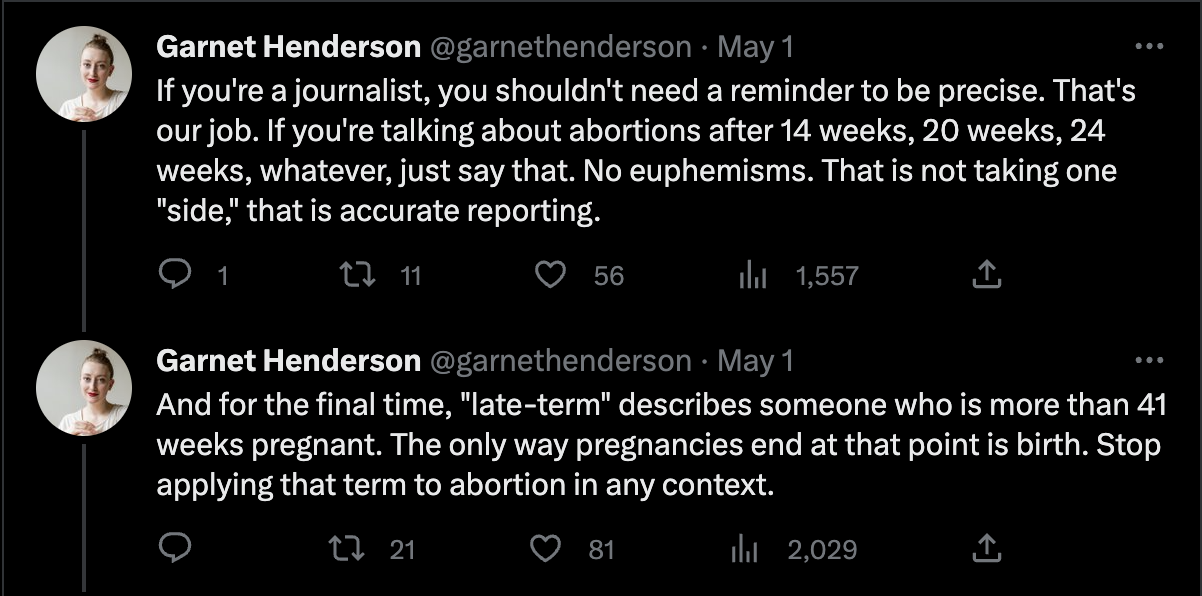
Finally, and on a happier note, writer, clinic worker, and abortion doula Hannah Matthews wrote a gorgeous book called You or Someone You Love, which invites all of us to think about the many ways in which abortion is a pillar of every community. Hannah and I had a lovely chat about her book. It’s out now and should be on your list.
“… I think that’s paralyzing a lot of people outside the movement. They’re worried they’re not educated enough. They’re worried they’re going to fuck up. But we’re all going to fuck up, and we’re all going to feel uncomfortable, and that’s part of it. This is not the moment to be worried about performing perfect social justice. This is the moment to be doing things, and taking action, and seeking out people to learn from so that we can invest in them, and partner with them, and collaborate with them.” - Hannah Matthews
Like I said, no whining. Only doing.
To receive new posts and support my work, consider becoming a free or paid subscriber.


